|
|

Do you have a piece of music languishing in a bottom drawer? You are rightly convinced of its merits, but do not have the financial means to get it performed?
When Harry Whalley, an Edinburgh based composer, found himself in this all too familiar predicament, instead of succumbing to bottom drawer desperation he launched his piece Entangled Music on Kickstarter, the website that aims to crowd-fund worthy projects. Digging around on the website I have discovered a whole host of other similar projects being funded in this manner: there is Meditation on ‘Haec Dies’ by Joseph Fear, a CD recording project of new music for solo piano on the theme ‘American Vernacular’, a series of vocal pieces by Daniel Knaggs, and many others. In fact, of all the creative categories on Kickstarter in 2012, music was the most successful, with a total of 5,067 receiving full funding.
The successful projects all seem to have something in common. They make reasonable financial demands and pledges can be as small as £1 (or $1 in the States). Harry, for example is asking for just £2,048. At the time of writing, with 13 days to go, he is already at £1,722. It is much the same with the other projects I have listed.
I find all this incredibly heartening. Who said that new music can’t survive in the marketplace? As such, perhaps it is time for all of us to pay Kickstarter a visit and start pledging towards whatever catches our eye. And also time for us all to show some self-belief, extract those masterpieces from their dusty dwelling-places and make appeals on behalf of our own music.
0 comments
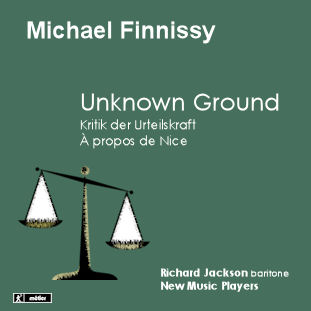
I often write about Naxos and, more obviously (it’s dedicated to contemporary music, after all), NMC in these roundups. Métier, now absorbed by Divine Art Recordings Group, is another label that is a treasure trove for new music lovers. Their most recent contemporary music releases are: Michael Finnissy’s Unknown Ground, James Weeks’ TIDE and Carson Cooman’s Rising at Dawn. I have listened to the first two of these.
I met Michael Finnissy at an event dedicated to his music at Cardiff University several years ago. He gave a talk to us that was quite unlike those that other visitors had given: it was often personal, sometimes bitter, but above all fascinating, revealing and inspiring. The concert that evening was unforgettable, especially for the chance to hear live his innocuous sounding English Country Tunes for solo piano, at the end of which the pianist is almost crucified on the keyboard with each hand playing virtuosically at extreme ranges. What was interesting from the other works in the concert, however, was that Finnissy’s music moves within a range: not everything is hard and angry. That is very much true of Metier’s new disc in their series dedicated to the composer.
It contains three première recordings: Kritik der Urteilskraft, Unknown Ground and A propos de Nice. Kritik de Urteilskraft is all restraint and fabulously beautiful long textures before opening out into more Webernesque pointillism. This never, however, entirely gives way to Finsissy’s preference for expressive melody. Unknown Ground is a moving setting of the words of various Aids sufferers. It is simply set, the emphasis always on the text, an approach that reinforces its emotionally charged content. A propos de Nice provides an often-jaunty contrast to the other two pieces, though it is interspersed with more contemplative passages that recall Kritik de Urteilskraft. The language everywhere is uncompromising, in spite of the occasional glimpses of English pastoralism. It is not easy music to get to know, but it is worth the effort. For those unfamiliar with his language, the disc is a good place to start.
James Weeks’s TIDE, is actually a melding together of three works, a ‘composite’ composition. These are Burnham Air for solo oboe d’amore, Tide (lower case) for solo cello and Sky for solo clarinet. These are presented apart on the second disc in the collection, together – not exactly at the same time since they are all different lengths – on the first.
Heard alone, Sky is a work of transcendental calm, the clarinet playing in lugubrious long counterpoints with a six-track recording of itself. The slightest event takes on enormous significance, the sound of the player’s breath, the beating sounds created by detuning. Burnham Air, by contrast, is a plaintive work of curling scales and arpeggios, key-rattles and wailing detuning. It works its way into a strangely passive but extremely unsettling frenzy. Tide sits in between the feverish machinations of Burnham Air and the cosmic breadth of Sky. It is, perhaps, the least interesting of the three when played alone; the ceaseless glissandi and droning feel a little unvaried.
The gradual unfolding of these three planes in the composite work TIDE feels almost mystical in its inevitability, the whole becoming greater than the already substantial sum of its parts. Especially striking, when the planes start to interact, are the spectral effects created by the shifts in tuning. It feels like Weeks is playing with the waveform essence of music, manipulating things at their very root. The result is music that feels original but in some way also primeval. There is a lot going on, and I can’t pretend to understand it all, let alone describe it in words. I recommend taking half an hour to make up your own mind, especially if you have Spotify, where Métier release all their recordings.
Other releases
Naxos has four new albums of contemporary music on offer. The first contains John Rutter’s Suite Antique, Philip Glass’s Concerto for Harpsichord and Chamber Orchestra and Jean Françaix’s Concerto pour Clavecin et Ensemble Instrumental. In the American Classics series there is a recording of John Knowles Paine’s As You Like It Overture, The Tempest and Symphony No. 1. The Maxwell Davies series also continues with Strathclyde Concertos Nos 5 (for violin and viola) and 6 (for flute). The last consists of world première recordings of John Corigliano’s Conjurer, a concerto for percussion and strings, and Vocalise for soprano and electronics.
0 comments
Whilst chatting to a friend recently he confessed to ‘centenary fatigue’. It wasn’t, he said, that he was bored with hearing music by Benjamin Britten. He did feel, however, that spending an entire year playing music by a composer whose work is often played anyway was a wasted opportunity. He extended that argument, though less pointedly, to Lutosławski (who, in the UK at least, has received less attention). Why don’t we, he suggested, explore music by centenarians whose music is less often played?
Inevitably this set me wondering whom these other centenarians might be, so I decided to have a bit of a dig around. Whilst I found many, only a handful had a discography big enough for me to construct what I was after: an alternative centenary celebration that didn’t feature the big two. So here’s my top seven, in no particular order. If you click on the name of the composer you can learn a bit more about them, the links on pieces will take you to relevant recordings on Spotify. If you have an account you can participate in this alternative celebration right away. If not, you will see some album information, which will help you track down recordings. Enjoy!
Jerome Moross (1913–1983)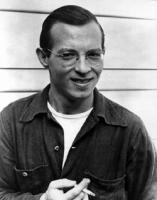
Born in New York, Moross who was a lifelong friend of Bernard Herrmann, with whom he shared an interest in writing for film and television. His best known film scores include The Big Country (1958), The Adventures of Huckleberry Finn (1960) and The Cardinal (1963). He also wrote concert works – including a symphony, a sonata for piano and a string quartet – and orchestrated for other composers, including Aaron Copland and Hugo Friedhofer.
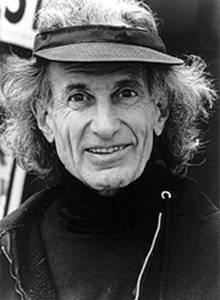
Henry Brant (1913–2008)
A Canadian-born American composer who developed the idea of spatial music, in which the location of instruments and singers is a compositional element. Whilst his larger works, such as Meteor Farm (1982), often include unusual instrumental combinations, he also experimented with homogenous instrumental timbres, as in Orbits for 80 trombones, organ and voice; Ghosts and Gargoyles for 9 flutes; and Angels and Devils for 11 flutes.
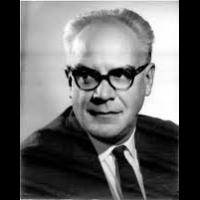 Alvin Etler (1913–1973) Alvin Etler (1913–1973)
Another American composer. His compositional style was inspired by Bartók and Copland as well as by some aspects of jazz. His best-known works are for wind (Etler, himself, was an oboe player), including his Quintet for Brass Instruments and Fragments for woodwind quartet.
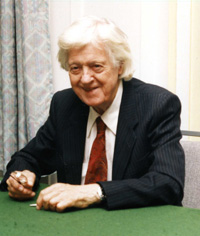
George Lloyd (1913–1998)
A British composer relatively well-known on these shores, but less so elsewhere. His style was staunchly conservative, which tended to divide opinion, even if few doubted his orchestral mastery. He is best known for his twelve symphonies and a number of concertos. His final work was his Requiem, completed three weeks before he died at the age of 85.
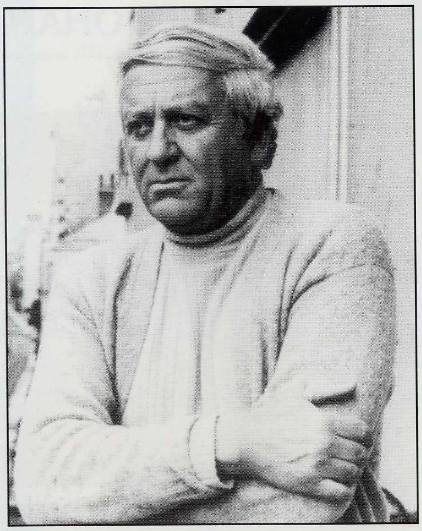 Maurice Ohana (1913 –1992) Maurice Ohana (1913 –1992)
An Anglo-French composer with a penchant for microtonality. This trait may have been influenced by his interest in Mediterranean folk music, especially Andalusican cante jondo. It is evident in such works as Si le jour paraît for ten-string guitar and Tombeau de Claude Debussy. A good starting place for getting to know his dense style is on Erato’s Ohana: The Collected Works.
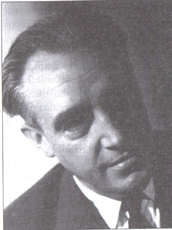
Constantin Silvestri (1913–1969)
A Romanian musician whose work as a conductor tends to obscure his significant output as a composer: he wote over forty orchestral, chamber and vocal pieces. One of his best known is his early Three Pieces for Strings. To learn more about him, it is worth reading the interview with Anda Anastasescu on CT, a Romanian pianist who has done much to champion his work.
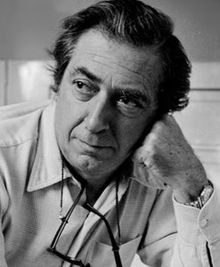 Norman Dello Joio (1913–2008) Norman Dello Joio (1913–2008)
An American composer with a conservative outlook. He studied with Bernard Wagenaar at the Julliard School and later with Paul Hindemith. Within the wind band world he is quite well known, especially for his frequently performed Fantasies on a Theme by Haydn. Other important works include Meditations on Ecclesiastes, for which he won a Pullitzer Prize for Music, and his Variations, Chaconne and Finale.
0 comments

I start with a reminder that, as well as reading this monthly summary of upcoming contemporary music events, readers should also check CT’s concert diary, to which all members are free to contribute. As usual, I’ve added a number of concerts that I have found hither and thither to this list.
A few especially caught my eye. The first, Total Immersion: The Rite of Spring 1913 is a day-long event to mark 100 years since the first performance of Le Sacre. It includes a showing of the films Ballet Russes and Riot at the Rite, a talk about the work and a family introduction to the evening concert that, of course, includes a performance of Stravinsky’s masterpiece. In Paris on 27th September IRCAM are marking the untimely death of Jonathan Harvey with a tribute concert that contains his Two Interludes and a scene from Wagner Dream as well as music by Webern, Bernd Zimmerman and Matthias Pintscher. The Barbican, finally are hosting the UK première of Kimmo Pohjonen and Samuli Kosminen’s Uniko. With its ‘lighting effects, surround sound and projections’ this is likely to be an unforgettable experience.
There are several important festivals in September. Ultima, the Oslo Contemporary Music Festival runs from 5th–14th. Scandanavia’s largest contemporary music festival, the theme this year is ‘Off-Road’, highlighting those who find alternative ways to create musical expression. Composers represented include Harry Partch, Conlon Nancarrow, Alvin Lucier and Frank Zappa. Alongside the festival runs Ultima Academy, an international symposium that includes lectures, workshops and debates about contemporary music.
The Warsaw Autumn International Festival of Contemporary Music runs from 20th–28th September. This year the focus is very much on new works, with the majority being either very recently or newly composed. Having said this, it also will focus on three important Polish anniversary composers: Witold Lutosławski (100th) and Henryk Górecki and Krzysztof Penderecki (80th). Performances will include Lutosławski’s Piano Concerto and Symphony No. 3, all three of Gorecki’s String Quartets and Penderecki’s St. Luke Passion.
In the UK, finally, the North Wales International Music Festival (20th – 28th September) will include performances of Britten’s Noye’s Fludde, vocal music by Paul Mealor and a rare chance, on the final day, to hear William Mathias’s Violin Concerto.
0 comments
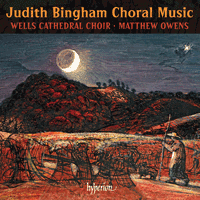
August sees another round of centenary releases, many of which revisit older recordings, either in the form of new collections or remasters.
Decca’s seminal 1963 recording of Britten’s War Requiem has been rereleased in a new version that uses the original tapes and early LP pressings. They have somehow managed to squeeze the entire War Requiem onto one CD or, if you have the equipment, a 24bit Blue-Ray disc. The second disc contains recordings of the composer in rehearsal, a historical document that will interest many. EMI have released a six CD collection of vocal works by Britten that includes performances, some of which date back to the 70s, of all of his orchestral song cycles: Les Illuminations, Our Hunting Fathers, Serenade, Nocturne, Phaedra and the astonishingly precocious Quatre Chansons Français, written when the composer was just fourteen. It also includes a number of folksongs, sonnets and canticles. On Signum Classics, meanwhile, there is a live recording of the Aldeburgh centenary production of Peter Grimes, featuring Alan Oke as Grimes, Giselle Allen as Ellen Orford, the Chorus of Opera North and Guildhall School of Music and Drama and the Britten-Pears Orchestra conducted by Steuart Bedford.
Lutosławski has, somewhat unjustly, received rather less attention than Britten this year. Naxos, however, have been steadily putting this right with a series of recordings, some of which I have commented upon in earlier roundups. They have now bundled these into a 10 CD box set. It includes many of his major works: the four symphonies, Jeux Venitiens, Chain I, II and III and the Piano and Cello Concertos. Whilst the majority of these are performed by the Polish National Radio Symphony Orchestra under Antoni Witt, the tenth ‘bonus’ disc reveals an important historical document worth the purchase price of the collection by itself: the final recording of Lutosławski in concert, here directing his Partita, Interlude, Chains I and II I and Chantefleurs et Chantefables.
Not a centenary composer, but one whose death last year makes him worthy of tribute, Hans Werne Henze is the subject of a new 16 CD boxed set featuring the complete recordings made by Deutsche Grammophon. As such, it is not a definitive collection; out of the ten symphonies by the composer, for example, it contains only numbers 1–6. There are, however, a number of other important works, notably his opera The Young Lord and his requiem for Che Guevara The Raft of Medusa.
If you would like a sanitised view of 20th century music, look no further than Decca’s new 3CD The Essential 20th Century. It contains some curious choices. Whilst I wouldn’t quibble with such works as Vaughan Williams’ Fantasia on a Theme by Thomas Tallis, Stravinsky’s Sacre or Ives’ 3 Places in New England I do wonder why they would include Eric Coates Dam Busters or John Williams’ Theme from Schindler’s List. I like both works but would call neither ‘20th Century Classics’. There is the occasional nod towards the more challenging, but even this can feel like tokenism. Schoenberg, for example, is represented by his 1897 String Quartet in D major, not even written in the twentieth century and not remotely characteristic of his oeuvre. Having said this, however, there’s enough meat amongst the lollipops to perhaps make this a useful introduction to those whose listening habits struggle to pass 1900. A present for sceptical friends and relatives, perhaps?
NMC this month will release a new disc of chamber music by Alexander Goehr. It features his Since Brass, Nor Stone for percussion and string quartet, …around Stravinsky (based upon the early Pastorale), Quintet for clarinet and strings, manere (based upon a medieval plainchant) and Large Siciliano. As sometimes happens on NMC, the disc has appeared on the website but the audio clips are not yet playable. This will change shortly. Hyperion, finally, has a new disc featuring the choral music of Judith Bingham, performed by Wells Cathedral Choir, Jonathan Vaughn on the organ and conducted by Matthew Owens. Highlights from the disc are available on the website and you are can download one track, Ave verum corpus, for free.
0 comments
Concert centres hosting summer festivals are alive with activity this month. Others, such as Wigmore Hall (here’s their August itinerary, which you can compare with a normal month, here), are taking a holiday break.
I mentioned ten festivals at the beginning of July, five of which – the BBC Proms, Schlesswig Holstein, Bregenz, Salzburg and La Roque D’Anthéron – continue into August and in some cases beyond. They are all, therefore, worth looking into again. There are also several other festivals that begin in August:
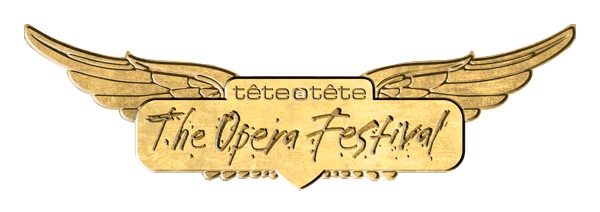
Tête à Tête, the only opera festival in the world that consists entirely of new works, gets going tomorrow. Each evening at the Festival typically features three longer pieces and a couple of shorter works. There is also the chance to go to free ‘Lite Bite’ unticketed concerts where works of up-and-coming composers are featured. This year these are: Matt Rogers’ Recurrent, Will Handysides’ Of My Daughter’s Prayer, John Webb’s Cat-Astrophe and – a much-respected Cardiff colleague of mine – Fleur de Bray’s Long Lankin.
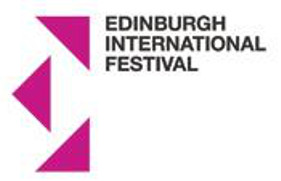
The Edinburgh Festival (9th August–1st August) offers a wide range of cultural events, as well as some concerts that feature new music. On 10th August, for example, there is the chance to hear the BBC Scottish Symphony Orchestra perform Varèse’s Intégrales Amériques and Berio’s Sinfonia. Philip Glass will also be present at the Festival, performing in a tribute to the work of the great Beat Generation poet Allen Ginsberg on 13th. A summary of all the concerts in the festival is available here.
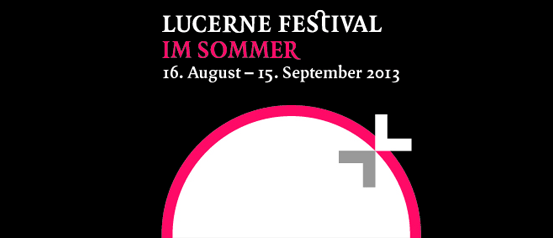
Taking inspiration from the 100th anniversary of Stravinsky’s Le Sacre du Primptemps, the Lucerne Summer Festival's (16th August–15th September) theme is ‘Revolution’. The focus will be on composers, new and old, who initiated radical innovation and whose music responded to political, social and cultural revolutions. Composers include Schoenberg, Shotakovich, Nono, Lachermann, Stravinsky and Israeli composer-in-residence Chaya Czernowin.
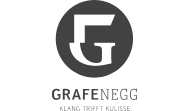
Whilst the beautiful venue at Grafenegg, Austria, offers concerts throughout the summer, it also has its own festival, which this year runs from 16th August–8th September. Of chief interest to readers here is a number of performances of music by Australian composer Brett Dean, who will also be in-residence. Works of his on offer include: Testament, Amphitheatre and Komorav’s Fall for orchestra and his Concerto for Viola and Orchestra. On 18th August there will also be the chance to see Dean interact with young composers in the final part of a workshop project. The festival programme can be found here.
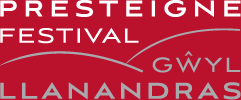
The Presteigne Festival runs from 21st – 27th August on the Powys/Herefordshire border. There will be the chance to hear Britten’s Curlew River played in a double-bill with a new three-act chamber opera by Sally Beamish based upon the biblical story of Hagar and Abraham. Gabriel Jackson is composer-in-residence and will be represented by a number of chamber and choral works, a new piece for string quartet and another chance to hear his Piano Concerto, commissioned by the Festival a few years ago. There will also be premières from Thomas Hyde, David Matthews and Robert Peate.
0 comments
Today, I have been trying to think of pieces of music that might be appropriate for the celebration of a royal baby. The Cunning Little Vixen, perhaps, with its story of birth and renewal. The only other opera with a baby that comes to mind – also by Janáček – is Jenůfa, but not even an ardent republican would find a story about infanticide very appropriate. There must be others. Perhaps Wills and Kate should commission a new work from a living composer. That would be a challenging brief.
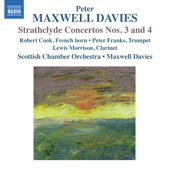
July CD Roundup
Chandos continues to celebrate the Britten centenary with a new disc featuring Howard Shelly performing his Concerto for Piano and Tasmin Little the Concerto for Violin accompanied by the BBC Philharmonic under Edward Gardner. The Piano Concerto is of particular interest since it also includes a recording of the original third movement of the work before it was revised in 1945. A search for Peter Maxwell Davies at Naxos now reveals three pages of albums that are dedicated to or contain his music, many conducted by the composer himself. This important work continues this month with a new recording of his Strathclyde Concertos Nos. 3 and 4 with Robert Cook (French horn), Peter Franks (trumpet), Lewis Morrison (clarinet) accompanied by the Scottish Chamber Orchestra under the baton of the composer. Also on Naxos is a recording of Salvador Brotons Symphony No. 5, Oboe Concerto and 4 Pieces with the Orquesta Simfònica de Balears conducted by the composer. There are, finally, two more complete editions this month. The first, released by DG, features the music of Messiaen and comes in on 32 CDs for the modest price of £82.83 (Amazon). The second, not strictly relevant here but catching my eye nevertheless, is the release of the already extant Teldec Complete Bach Edition in a new format: a 32GB USB stick. You can pick this up for a paltry £136.20 at Amazon. Take my money…
.jpg)
Embedded
Sound and Music are currently running calls for three Embedded projects. The deadline – 30th July – is fast approaching. The first is from The Opera Group, who are offering the opportunity for two composers to spend 18 months in residence with them. You don’t have to have had any experience of writing opera to apply. The second is from the Somerset House Trust. The successful applicant will be given the chance create works in response to the ‘unique spaces’ in the building. Finally, the University of Huddersfield is offering the opportunity for a composer to create one or more new works that engage with objects in the British Music Collection. More details are available on the Sound and Music website.

The BBC Proms – Looking Ahead
A heads up for interesting concerts at the BBC Proms over the last few days of July. Thursday 25th sees the world première of John McCabe’s Joybox in a concert of works inspired by or written for dance. McCabe’s music can be colourful and very direct when he’s in the mood (as, for example, in his Les martinet noirs), so I’ve feeling we’ll be in for a treat. Monday 29th sees the UK première of Colin Matthews’ mercurial Turning Point, a work actually written some seven years ago – it is curious that it has taken so long to make its way to our shores. For something different on the same day, check out Naturally 7’s late night Prom. I freely admit they are not my cup of tea, but their R&B a capella beatboxing is, nevertheless, highly engaging. The late night Prom on 31st also looks interesting, with performances of Frank Zappa’s drolly counter-cultural The Adventures of Greggery Peccary, a performance of Nancarrow’s Study for Player Piano No. 7 and the UK première of Philip Glass’s Symphony No. 10.
0 comments
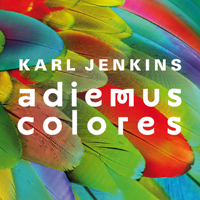
It’s fashionable to knock Karl Jenkins. Some might say that it is even inappropriate for me to blog here about him. The truth is, however, that his music provokes valid questions about the place of contemporary music in our society. He is one of the few living composers who make a living out of writing concert music away from the support structures of arts bodies. For that alone he should demand respect.
In the world of record labels successful music equals commercial music. Measuring the worth of a piece of music is not, however, as simple as this, as we all know. A piece of music may only be readily understood and enjoyed by a few people, but that does not mean it is not good music. But, in my opinion, neither should pleasing a vocal claque by being esoteric be seen as a sign of success either. I’m not going to open up the distinctly tricky subject of ‘high’ versus ‘low’ art here. That’s a subject for university lecture theatres and learned tomes on musical philosophy (try Roger Scruton’s excellent Understanding Music for example). Jenkins himself is rather pleasingly open-minded on the issue of style: ‘"I firmly believe that the future of music lies in a plurality of styles, each composer and each listener true to themselves and to the music that moves them; that expresses our emotions and the world we live in today.” That presupposes a rejection of schools of composition, prescribed and proscribed methods of writing. Whilst such schools have undoubtedly created great art they also have had the unfortunate side effect of side-lining composers who didn’t fit in with their manifestos. Think of Boulez’s rejection of almost anyone who didn’t agree with him. Ultimately we are left with the music, which must be judged in its own right.
I like some of Jenkins’ music. It’s not at all ironic that this most commercial of composers spent much of his early life composing commercials. This gives him an enormous facility for connecting with listeners quickly and directly. I would go so far as to say that if you are unmoved by listening to his extraordinarily catchy Adiemus then probably music is not for you. It gets under your skin. It is music that sets out to provoke an immediate and physical response. It succeeds. In this way it’s not much different from, say, the opening Responsorium from Monteverdi’s Vespers. You won’t find many commentators on high art knock that particular work. The problems, for me, set in when he attempts to write works of greater emotional depth.
The simplicity of the opening of the Monteverdi is, of course, the prelude to a work of extraordinary depth and compositional mastery. When Jenkins tries to tackle something similar, things tend to descend into pastiche and cloying sentimentality. His The Armed Man: A Mass for Peace is a classic example of this. Given his subject matter, his opening treatment of the old tune L’homme armé is embarrassingly anodyne and compositionally not very imaginative. There is a successful pastiche of Palestrina in the Kyrie, but it feels stylistically wrong alongside everything else, not least the inexplicable Muslim call to prayer that precedes it (David Fanshawe was much better at incorporating this sort of thing). It goes on like this. Not strictly part of the work, the album of the Mass ends with a setting of Laurence Binyon’s For the Fallen, a frighteningly saccharine work full of snippets of the Last Post and a voice over of the second stanza of the poem.
Given all this I was quite glad this month to see Jenkins return to his Adiemus project with the disc Adiemus Colores. As Jenkins himself has described it, it is kind of Adiemus meets Latin America. Jenkins’ fascination with the area comes through Afro-Cuban jazz, the music of Antônio Carlos Jobin and Àstor Piazzolla and his involvement with jazz-fusion band Nucleus. As a Welshman he is also drawn to this part of the world by the historical curiosity of there being a Welsh-speaking settlement in Patagonia, Argentina. Each section of the thirteen-movement work is named after a colour, the music abstractly reflecting that colour. The music itself is full of Latin American pastiche: curling and moody trumpet solos, smoochy strings, throaty vocals and, of course, Latin rhythms. This is no bad thing; the style helps to draw the whole thing together. Jenkins also injects it with plenty of toe-tapping energy. There’s nothing that quite approaches the goose bump-inducing original Adiemus track, but what we’re left with is perfectly attractive well-made music. It doesn’t challenge but it certainly entertains.
Jenkins makes much of being true to oneself as a composer. Compared to the mishmash that was The Armed Man he achieves this here. He should, perhaps, remember this next time he embarks on one of his more profound utterances.
0 comments
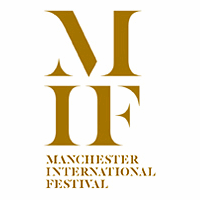 Manchester International Festival 4–21st July Manchester International Festival 4–21st July
The biennial festival consists of dance, theatre, panel discussions and even an urban farm project. There are also some contemporary music events including, on 7th July, an evening of new and rarely performed work by John Tavener. The full brochure is available here and there is also a handy page on the festival website where you can see a list of events for which tickets are still available.
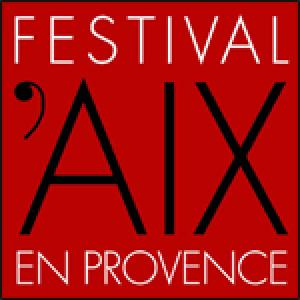 Festival ‘Aix en Provence 4th–27th July Festival ‘Aix en Provence 4th–27th July
This year’s festival in Aix-en-Provence, Southern France, includes the world première of Vasco Mendonça’s opera The House Taken Over on 6th, 8th, 11th, 13th, 16th and 17th July, a concert of contemporary music on 13th July and other concerts that include music by Schulhoff, Bartók, Ligeti and Janáček.
.jpg) Buxton Festival 5th–21st July Buxton Festival 5th–21st July
Billed as ‘A happy marriage of opera, music and books’, the festival includes performances of Sacred and Profane, The Prodigal Son and The Burning Fiery Furnace by Britten and The Killing Flower by Salvatore Sciarrino and Eight Songs for a Mad King by Peter Maxwell Davies. The full brochure is available here, with a quick summary, including current ticket availability, here.
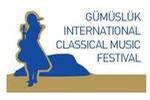 Gümüslük International Classical Music Festival 5th July–7th September Gümüslük International Classical Music Festival 5th July–7th September
Heading further afield, the Gümüslük Festival near Bodrum in Turkey holds intermittent concerts throughout the summer months. A summary is available here with a link to more detailed information at the bottom of the page. Contemporary comopsers represented include Philip Glass, Pekka Pohjola, Pat Metheny and Györgi Ligeti.

Schleswig-Holstein Musik Festival 6th July – 25th August
Held in Northern Germany, this festival totals 118 concerts, including three in the countryside and a children’s music festival. The programme is not very easy to search by composer, but some digging around has revealed music by Heino Eller, Erikki-Sven Tüür, Peteris Vasks, Tönu Körvits, Sofia Gubaidulina, Henri Bourtayre, Wilhelm Kaiser-Lindemann and Veljo Tormis. If you are in the area or planning a trip there it is well worth investigating further.
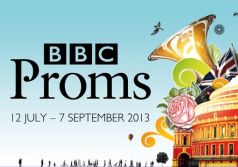
BBC Proms 12th July–7th September
This year’s Proms features commissions for Julian Anderson, Diana Burrell, Anna Clyne, Edward Cowie, Tansy Davies, David Matthews, John McCabe and John Woolwich while the world premiere of Tom Adès’s Totentanz is given by the BBC Symphony Orchestra on 17th July. The first night opener will be the first performance of Julian Anderson’s Harmony. A full list of composers can be found here.
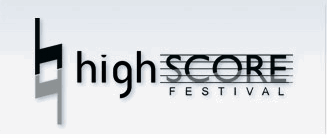
highSCORE Contemporary Music Festival and Master Classes 15th–27th July
The highSCORE Festival in Pavia, Northern Italy offers a venue for emerging composers to develop their craft and to promote it to audiences. There are some major figures attending, including guests of honour Louis Andriessen and Martin Bresnik. Frustratingly, the concerts link seems currently only to lead to a gallery of photos. You can contact the artistic director Giovanni Albini, however, on this email address: artdir@highscorefestival.com.

Bregenzer Festspiele 17th July–18th August
The most notable contemporary music event this year is the world première of Ben Frost’s music theatre adaptation of the late lamented Iain Banks’ chilling The Wasp Factory. Set for three performers, string quartet and electronics to a text adapted by David Pountney, it takes place on 1st August.
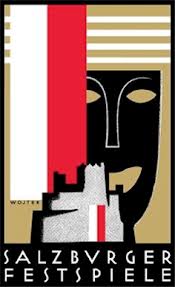
Salzburg Festival 19th July–1st September
The festival’s wide-ranging programme of opera, drama and concert music can be viewed here. As well as finding works of interest embedded in concerts throughout, there are ten events, almost like a festival within a festival, labelled ‘Salzburg Contemporary’. These include works by Tōru Takemitsu, Toshio Hosokawa, George Benjamin, Harrison Birtwistle, Isang Yun, Dai Fujikura, Maki Ishii and Friedrich Cerha.
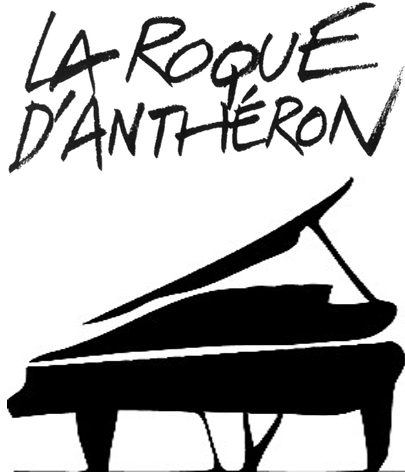 Festival International de Piano 20th July–20th August Festival International de Piano 20th July–20th August
The festival, held in La Roque d’Anthéron near Marseille in Southern France, is dedicated entirely to piano repertoire. Much of the programme concentrates on pre-twentieth century repertoire, but dig a little deeper and you will also find some Ligeti, Stravinsky and a Jazz concert on offer.
0 comments

From my teens until my twenties I was an avid collector of CDs. A few of my friends in school were the same. Hardly a week would go by without one of us bringing in a new acquisition, usually from the mainstream classical repertoire. We would pore over every detail of the work and be witheringly critical of performances that failed to use ‘authentic’ performance practices. As my interest in contemporary music grew I later added many twentieth and twenty-first century works to my collection. I have some 300 CDs, neatly laid out on shelves in my living room. I hardly ever touch them.
CDs were consumers’ first experience of purely digital music production. Only those marked with the holy trinity of DDD (digitally recorded, digitally mixed, digitally transferred) were good enough for me. I loved the shine of them, the quality of the sound and, of course, the music itself. Then, along came iTunes, Spotify and the rest of it. Downloads did away with my disks. My CDs gathered dust; it always seemed easier to look up a piece on Spotify, even if it was not quite the recording I would have bought. I never bothered ripping my CDs to iTunes because, as an iPhone user with a paltry 32GB, I could not have transferred all of my music onto it. This last few weeks, however, I have been breathing new life into my CD collection with Apple’s iTunes Match.
iTunes Match has been around since the end of 2011. For £21.99 a year you can upload your entire music collection into the cloud. What is rather clever is that, when you rip a CD to iTunes on your computer, iTunes can work out what it is and, rather than uploading the entire CD, it identifies the album in the iTunes catalogue and makes it available across all of your devices. This also means that if you ripped a CD to a low bit rate file, perhaps to save hard drive space, iTunes can identify the album and make it available to you in the full 256 kbps from the cloud.
The service has come in for criticism and, I must admit, the process of ripping CDs, cleaning up the information and finding cover art is tedious (the program TuneUp, makes things rather easier, however). The process of matching is also not as smooth as it should be; I think more than half of my tracks have actually been manually uploaded. But once the music is in the cloud it is great. I can now listen to the hundreds of disks I lovingly collected wherever I am and without it using up valuable disk space. I am now reengaging with my CD library in a big way. Also, in case you think I am being typically Mac-centric, you can get similar services with Amazon Cloud Player and Google Play. If you’re not sure which is for you, arstechnica.com have written a useful comparison of the three.
0 comments
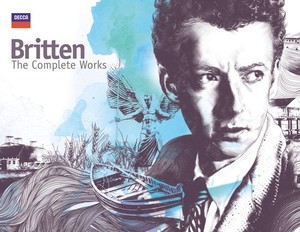
And so to this month’s CD releases or digital downloads, whatever’s your poison.
Decca doesn’t appear to have made new recordings this month, but, based around its extensive catalogue of works by Britten, conducted by Britten, it has released the first ever complete survey of the composer’s oeuvre to commemorate the 100th anniversary of his birth. The collection comes in at 65 CDs and also features films of the composer at work. It is available for £149.99 on Amazon which, given the outstanding pedigree of many of the recordings, is a bargain.
Hyperion has released a generous collection of choral works by James MacMillan. Central to the disk is his Tenebrae Responsories, a dramatic a capella work whose wide influences include the music of Renaissance masters such as Gesualdo and the chromatic language of Wagner. It is contrasted with more jubilant works, including Tu es Petrus, Summae Trinitati and Ecce sacerdos magnues, for which the choir is joined by London Brass. Also on Hyperion is a complete survey of Stravinsky’s music for piano and orchestra. Whilst this only amounts to six pieces, it makes an interesting programme, taking in as it does such varied pieces as the Neoclassical Concerto for Piano and Wind Instruments (1923-4) and his much later rotationally serial Movements (1959).
Naxos, finally, have issued three new recital programmes. The first is an isoteric-sounding album of twentieth century Italian clarinet solos performed by Sergio Bosi. It contains works by Berio, Bettinelli, Bucchi, Dionisi and Gabucci. The second is of twenty-first century Spanish guitar works. The first of a projected series, it includes music by Brotons, Puerto, Morales-Caso, Cruz de Castro and Balada. Finally, there is a disk of Polish violin music, which includes Gorecki’s Little Fantasia and Lutosławski’s Recitativo et Arioso.
0 comments
As it celebrates it sixtieth anniversary Christian Morris talks to Artistic Director John Woolrich about the past, present and future of the Dartington International Summer School.
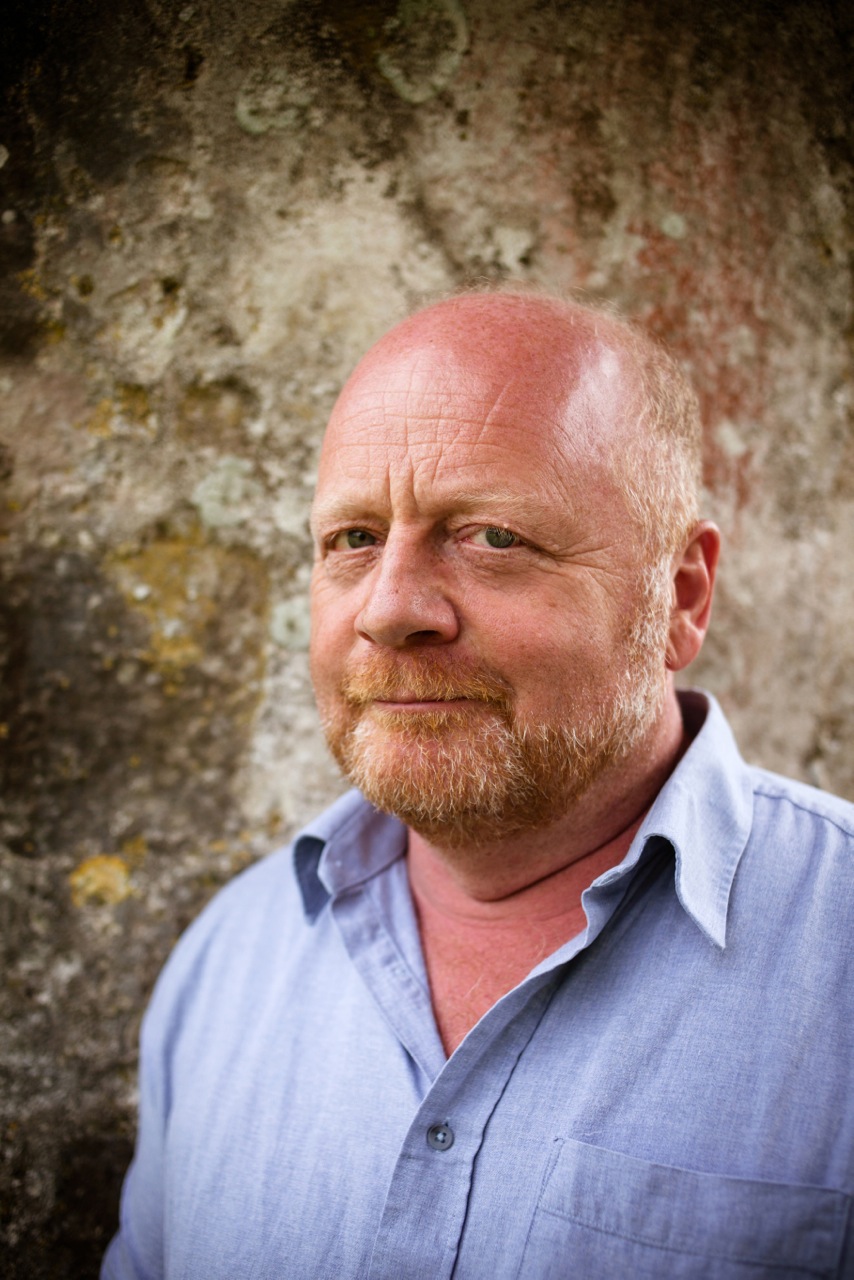 |
|
John Woolrich - photo by Kate Mount |
Tell us a little about the history of the Summer School and especially how it came to be founded.
It started in the late 40s. It was part of the desire to get Britain moving again after the Second World War combined with other cultural factors such as the invention of the Arts Council. What happened was that Artur Schnabel, an Austrian pianist, was at the Edinburgh Festival - it may have been the first - and he said "Great. Britain's got a major international music festival, now what it needs is an international summer school where the audience can be helped to understand about music and you can have masterclasses and all of that kind of thing." He also said he knew the man who could run it, William Glock, who had been a pupil of Schnabel. Glock had been the Observer Music Critic and would go on to be the Controller of the Third Programme, Controller of the Proms and so forth. Glock started it at Bryanston public school, where he ran it for three or four years before moving to Dartington Hall.
At Dartington there was this extraordinary couple, an American called Dorothy Elmhirst, who was fantastically wealthy and her husband Leonard, who was English. They were interested in experimentation in agriculture and education in the arts so it was the perfect home for a summer school. The idea was to get some of the greatest names from Europe and America to Britain because Britain, because of the War, had been isolated. It was to try to open up connections. So very quickly Glock got people like Hindemith, Enescu and Menuhin to teach in this place in remote Devon. Glock ran the Summer School into the late seventies, for 25 or 26 years. He got incredible people to come: in three or four years in the sixties, for example, Barenboim, Brendel and Ashkenazy came to Dartington and Fischer-Dieskau gave his first concert in Britain there. The composition teachers were extraordinary too: he got everyone except Messiaen and Boulez. And Stravinsky came in 1957. So at a time when you wouldn't have got within 15 feet of Stravinsky in New York or Los Angeles you could have a cup of tea with him in Devon. He was there for two weeks. Berio, Maderna and Nono taught for three consecutive years in the early sixties. And so on. The unique thing that Glock invented was the mixture of amateurs and extraordinary students such as, for example, Tom Adès.
>> Click here to read the rest of the interview
0 comments
 The 66th Aldeburgh Festival runs from 7th–23rd June. It celebrates the composer’s 100th birthday year with performances of Peter Grimes in the location that inspired it and The Church Parables in their original venue; an insight into Aldeburgh’s Friday Afternoons singing project highlighting Britten’s work with children and amateurs; and an inspired by Britten series showcasing the influence of the composer through 20 commissions across different musical genres and art-forms. Composers whose works are to receive premières include: Judith Weir, Thea Musgrave, Julian Anderson, Harrison Birtwistle, Charlotte Bray, Magnus Lindberg, Wolfgang Rihm and the much missed Jonathan Harvey and Elliott Carter. The 66th Aldeburgh Festival runs from 7th–23rd June. It celebrates the composer’s 100th birthday year with performances of Peter Grimes in the location that inspired it and The Church Parables in their original venue; an insight into Aldeburgh’s Friday Afternoons singing project highlighting Britten’s work with children and amateurs; and an inspired by Britten series showcasing the influence of the composer through 20 commissions across different musical genres and art-forms. Composers whose works are to receive premières include: Judith Weir, Thea Musgrave, Julian Anderson, Harrison Birtwistle, Charlotte Bray, Magnus Lindberg, Wolfgang Rihm and the much missed Jonathan Harvey and Elliott Carter.
 The St. Magnus International Festival (20th – 28th June) sees a celebration of pioneers and explorers as well as themes of fairytales, folk tales, myths and legends. It will also celebrate the life of John Rae, the Orcadian doctor turned explorer who joined the Hudson’s Bay Company in Canada and then went on to survey the Northwest Passage. The Hebrides Ensemble is in residence throughout, working with the Composers’ Course towards a concert of new works on 26th June (concert 34). Other premières include: the collaborative Long Strides, a dramatic work recreating episodes from John Rae’s life; Maxwell Davies’ Oboe Quartet; as yet untitled works by Dan Stern, Alasdair Nicolson, Elisabeth Cowe and Fiona Rutherford; and Christopher Gough’s Durham Scenes. The St. Magnus International Festival (20th – 28th June) sees a celebration of pioneers and explorers as well as themes of fairytales, folk tales, myths and legends. It will also celebrate the life of John Rae, the Orcadian doctor turned explorer who joined the Hudson’s Bay Company in Canada and then went on to survey the Northwest Passage. The Hebrides Ensemble is in residence throughout, working with the Composers’ Course towards a concert of new works on 26th June (concert 34). Other premières include: the collaborative Long Strides, a dramatic work recreating episodes from John Rae’s life; Maxwell Davies’ Oboe Quartet; as yet untitled works by Dan Stern, Alasdair Nicolson, Elisabeth Cowe and Fiona Rutherford; and Christopher Gough’s Durham Scenes.
In Europe the Bayerische Staatsoperoper Festival begins on June 21st. There are many established works on offer. Lovers of new music, however, can look forward to performances of Jorg Widmann’s Babylon on 21st July as well as several performances of George Benjamin’s Written on Skin.
The mini-festival Zeit für Neue Musik has concerts in Bayreuth on 21st, 26th, 29th and 30th June. It will include new works by Helmut Bieler, Wolfram Graf, Michael Strong and others written as part of the city’s ‘200 Years of Richard Wagner’ programme.
0 comments
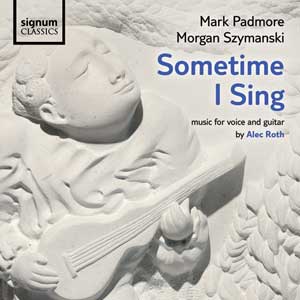
I’ve just come back from a trip to southern Spain, visiting such wonderful places as the Mezquita at Córdoba, the Alhambra at Granada, Seville Cathedral, Ronda and even hopped over briefly to Tangier in Morocco. The surprise was Málaga, a beautiful city that is not obviously so when viewed from the outskirts. It was there I met briefly with a composer colleague based in the city.
I have long hankered after the idea of moving to Spain. Anyone who talks to locals for any length of time will eventually hear the words ‘La Crisis', a phrase used to describe current economic circumstances. If here in the UK we sometimes bemoan the opportunities on offer, then visiting another country can remind us just how lucky we are. Contemporary music in Spain seems to be suffering badly in the straightened economic times, with very little funding available for the promotion of the art and with a great deal of indifference shown by audiences. I was advised to stay where I am.
The conundrum of place – where to live whilst plying one’s art – weighs heavily with me. A composer needs the support system typically offered by a big city; the presence of other musicians and the opportunities that this affords. I find no pleasure in big cities. Some composers, of course, manage to strike a balance or even, like Maxwell Davies, heroically turn apparently barren musical ground into an oasis to which others come in pilgrimage. We are not all, perhaps, so well equipped to do this. Is it better therefore to live in a place that makes us unhappy but gives us opportunities, or to be happy in one’s surroundings but feel musically isolated? I suppose there is a certain heroism in being a lonely Nancarrowesque figure, writing for oneself. Music, however, is essentially collaborative and the danger in isolating oneself is that one stops feeling that creating is even worthwhile.
Whilst I’ve been away there have been a few new CD releases that I am only just catching up on. There are two new discs on Signum Records. The first, Sometimes I Sing by composer Alec Roth, is a haunting disc of music for tenor (Marc Padmore) and guitar (Morgan Szymanski) to texts by Thomas Wyatt, Vikram Seth, John Donne and Edward Thomas. The music has a jewel-like simplicity that owes much to folk idioms. Padmore’s singing is mesmerizingly beautiful. The second is another new recording of Le Sacre du Printemps, this time programmed with Ravel’s La Valse and Mother Goose. It is performed by St. Petersburg Philharmonic under Yuri Termirkanov. Both discs are available on Spotify.
Musical Opinion has called Portuguese composer Luís Tinico works ‘as engrossing as they are entertaining’. Naxos has released a disk of his orchestral and vocal-orchestral pieces: Round Time, From the Depth of Distance, Search Songs and Canções do Sonhador Solitário. They are performed by Orquestra Gulbenkian under David Alan Miller. Bob Chilcott, that most loved and performed of contemporary choral composers, also has a new album on Naxos performed by the Wellensian Consort under Christopher Finch. It includes This Isle is Full of Noises, The Lily and the Rose, A Little Jazz Mass, I Share Creation and Aesop’s Fables.
NMC’s debut disc series continues this month with a new album that showcases Joseph Phibb’s writing for voice and chamber groups. It’s centrepiece, The Canticle and the Rose, sets a series of poems by Edith Sitwell for soprano and string quartet. From Shore to Shore is for countertenor and guitar and sets a series of old and new poems on the subject of the sea. There are also two instrumental works: Flex, for piano, flute, viola and cello and the short string quartet AGEA.
0 comments
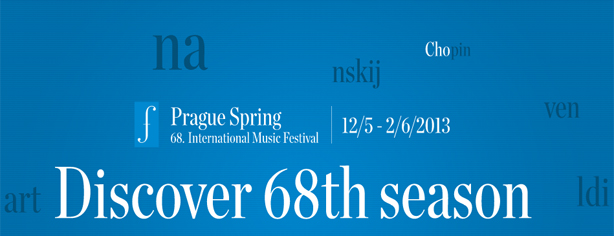
As well as many interesting individual concerts of contemporary music, May sees the earnest beginnings of festival season.
The Vale of Glamorgan Festival runs from 9th–18th May in various venues in the county. Highlights include: the visit of Graham Fitkin to celebrate his 50th birthday with a world première of a new work; the music of award winning American Sebastian Currier, who will also be in attendance; and world premières of works by Aaron Kernis, Galina Grigorieva, Festival Director John Metcalf and the first public performance of a new percussion concerto by the BBC National Orchestra of Wales’s Composer in Residence, Mark Bowden.
At the Barbican the ever-energetic Nico Muhly is curating ‘A weekend of new sonic pleasures’ on 10th–12th May. The intriguing title, ‘A Scream and an Outrage’, is fully explained in a two-part podcast available on the mini-festival website. A complete list of composers and performers is available here.
The Prague Spring International Music Festival runs from 12th May–2nd June. The full programme can be viewed here. Concerts that contain new music include: on 14th May the Czech première of Kryštof Mařatka’s Vábení. Ritual of the Prehistoric Fossils of Man for mixed choir and symphony orchestra; on 19th Ensemble Intercontemporain playing Harvey, Boulez, Mantovani and Srnka; and, on 27th May, the chance to hear Ľubica Čekovská’s Violin Concerto.
The Bath International Music Festival takes place from 22nd May–2nd June. On 25th the BBC Singers perform, amongst other pieces, Paul Crabtree’s Tenebrae Responsories on Songs by Bob Dylan and Benard Hughes’ The Death of Balder; there is composers’ masterclass on 29th with Alasdair Nicolson and the Hebrides Ensemble; and Britten’s Women, a music theatre piece on 30th May given by students of the Royal Welsh College of Music and Drama that explores the role of women in works by the composer.
The Norfolk and Norwich Festival (10th– 26th May) features the world première on 11th of Ideas of Light for choir, solo voices, saxophone and string trio – a collaborative work by Barbara Thompson, Orlando Gough, Jonathan Baker and Karen Wimhurst. There is also the chance to hear Britten’s Our Hunting Fathers, Sinfonia da Requiem and Four Sea Interludes on 13th May and, on 23rd, John Adams’ Shaker Loops and Chamber Symphony and Nico Muhly’s Seeing is Believing and Double Standards (UK première).
The English Music Festival, from 24th– 27th May is held in and around Dorchester-on-Thames. It largely features music from the earlier part of the twentieth century and before. The final concert, however, is dedicated to new commissions. The programme is available here.
Just down the road from me, in beautiful St. Davids, Pembrokeshire, the Cathedral Festival takes place from 24th May–2nd June. The varied programme includes works by Philip Moore, James Macmillan and Paul Mealor. The last of these composers will be present for the first performance of his new work The Farthest Shore on 28th.
0 comments
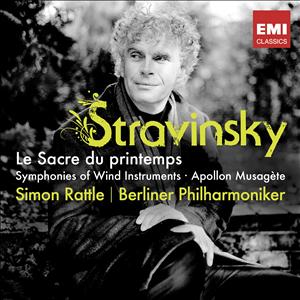
Timed to mark the hundredth anniversary of this most iconic of twentieth century masterpieces, Simon Rattle and his Berlin forces have just released a new recording of Stravinsky’s Le Sacre du Primtemps on EMI. For those looking for a review, perhaps it would be easier for me to direct readers to the Guardian’s Andrew Clements, with whose sentiments I largely agree. This is a Sacre of superb precision, opulently recorded. It certainly has energy but does it have danger? To my mind, Berstein in his 1958 New York Philharmonic recording achieves a snarling savagery that electrifies in a way that this performance does not. Also worthy of consideration is Boulez’s 1969 recording with The Cleveland Orchestra or, as much a historical document as for its performance, the 1960 recording of the work with Columbia Symphony Orchestra conducted by the composer. This last recording, what is more, is available in a bargain-basement 22-disc boxed set of works by Stravinsky, conducted by Stravinsky.
Signum records have released a collection of songs by Richard Rodney Bennett – Letters to Lindbergh, The Aviary, Dream-Songs, A Song at Evening and Four American Carols – performed by the National Youth Choir of Scotland Girls’ Choir. Many of the songs are great fun, showing Bennett at his most urbane, others, such as the atmospheric Dream Songs, reveal a profounder inspiration. They are all sung with gusto, if a little colourlessly, by the NYCoS. The programme is broken up by Over the Hills and Far Away, Bennett’s imaginative arrangement of a series of famous folk and nursery tunes for piano duet.
Like a friend of mine who once effusively greeted Michael Berkeley by saying how much he loved Lennox Berkeley’s music, I’m sure Anthony Payne wouldn’t thank me for saying that the work of his with which I am most familiar is his marvellous completion of Elgar’s Third Symphony. Those in the same position as me can put this right with a new release this month on NMC of Anthony Payne’s Phoenix Mass. I’ve only been able to dip into the extracts on the website, but it is clearly an intensely serious, dramatic and poised work. Also on the disc is Paen for piano, The World’s Winter, a setting of Tennyson for Jane Manning and the Nash Ensemble and his more recent (2006) Horn Trio. Apart from the Horn Trio all the works have been transferred from LP in the absence of original masters. The resulting sound quality is more than acceptable.
Also released on NMC is a recital by guitarist Antonis Hatzinikolaou. The disc takes its name from one of the great guitar works of the twentieth century, Nicholas Maw’s Music of Memory, a set of variations on a theme from Mendelssohn’s String Quartet in A minor. The programme is bookended by Maw’s Little Suite Guitar with a varied programme of works in between: Joseph Atkins’ Indian Summer, Peter Racine Fricker’s Paseo, Matthew Taylor’s Fantasy for Guitar, Bayan Northcott Fantasia for Guitar, Charlotte Bray’s Passing Shadows and John McCabe’s Canto for Guitar.
Dutton Vocalion have released a disk that celebrates Stephen McNeff’s recent period as the Bournmouth Symphony Orchestra’s Composer in House with recordings of his Sinfonia (2007), Heiligenstadt (2005), Weathers (2007) and Secret Destinations (2005). Naxos, meanwhile, continue their survey of the music of Peter Maxwell Davies with a new recording of his Strathclyde Concerto No. 2 and Sonata for Cello and Piano with Vittorio Ceccanti, Bruno Canino, the Orchestra Sinfonica Nazionale della RAI under the baton of the composer.
0 comments
Christian Morris talks to Anda Anastasescu, pianist, founder of the London Schubert Players, champion of Romanian contemporary music and creator of the European Union-funded Invitation to Composers project.
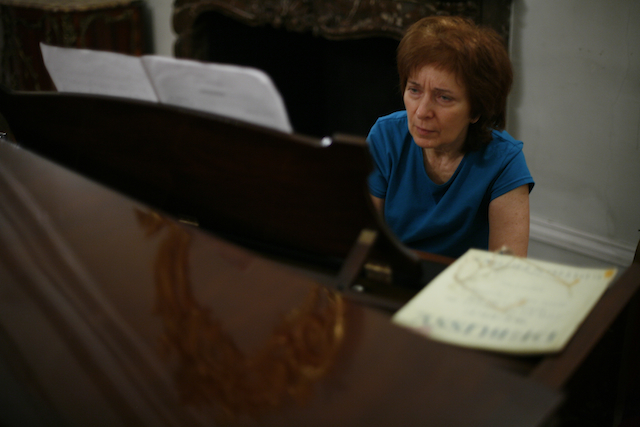 |
|
Anda Anastasescu |
Tell us a little about your background in Romania.
My mother was musical and played the piano. She would have liked to have become a professional but in her day women were expected to get married and have children. So we had a piano, a beautiful piano, at home. It's not that she inspired me to play, even though we would sometimes hear her playing the piano for a short while - rather, it was the occasional holiday that we took in the summer to a place where we met a piano teacher. After the war Romania's education and cultural life was based on the Soviet model. In the late Fifties we met this teacher who had started to teach at the then only music school in Bucharest. She persuaded my mother to take me there with my sister for an audition. This is how it all started. The jury found us to have a very good ear, very good rhythm and very good this and that. So we started at music school.
How old were you at the time?
I was eight, which was late, but in Romania we have no tradition of Suzuki, with children starting an instrument at three or four. But I caught up quite easily.
One associates the Communist model with very strict discipline and hot-housing. Was it like that?
All I can say is that the moment you stepped into a music school, it was taken for granted that you would be a very serious, committed pupil. Our teachers inspired us from childhood to love music and, in a sense, to make it our religion. So every piece of music we learnt meant that we had to explore our inner self very deeply and feel that we were giving ourselves totally to the piece we were performing. This kind of work demanded, even from a young child, quite a lot of concentration and dedication. You couldn't get away from it. I couldn't say that inside the school we were regimented or pressurised. Of course we had exams, concerts and auditions all the time, so you had to prepare. There was no other way. Teachers were also very generous with their time, so we had a very large number of long, private lessons for which they were never paid. We loved having these lessons; in fact, we didn't want them to end because we were exploring the mystery of what the composer was thinking, how we could understand and feel like him, and ultimately how we could achieve the best performance. It was absolutely fascinating.
>> Click here to read the rest of the interview
0 comments

Image from The Firework-Maker's Daughter
It’s hard not to feel a bit bucked at this time of year. Today, as I look out of my window, I see bright sunlight, budding trees and flowering bulbs. I also hear, slightly annoyingly – since it is in my roof-space – nesting birds. The odometer of life may ominously continue ticking, but the presence of so much that is ‘new’ makes one feel less aged. ‘April hath put a spirit of youth in everything.’
Of course ‘newness’ is concept that is rather important to ‘New’ Music, for obvious enough reasons. And this month brings forth its fair share of premières. Some of these, however, are youthful in a different way, since they contain music by the next generation of composers. This is the case, for example, with three concerts by student composers. One of these features Maury von Loon, David Everson, Jason Mitchell and Jennifer Harris at the Sherwell Theatre, Plymouth University. The other two will take place at Ircam in Paris and mark the end of a year of study for young composers in the Cursus for Composition and Computer Music programme.
There are also a noticeable number of courses designed to help and support young composers. Some of the best of these are run by BCMG (many of which are on-going): ‘Feel the Buzz’, a composing project for 14-18 year olds; Family Music Maze, for 8-11 year olds; the Zigzag Ensemble, a composing and improvising group for 12-16 year olds; and BBC Inspire Composer Lab, a day-long workshop for 12-18 year olds. The LSO also has two schemes: their Futureworks for Young Composers, which invites composers aged 14-18 for a day of composition workshops and glimpses behind the scenes; and their continuing Panufnik Composers’ Project.
Two contemporary music events might also be appealing choices for audiences who are young at heart. The first is a performance, again by BCMG, of Into the Little Hill, George Benjamin’s reimagining of the Pied Piper story. It will be performed as part of a day exploring his music at Wigmore Hall. Also a good bet would be The Firework-Maker’s Daughter by CT’s own David Bruce. The opera, based upon a fairytale by Philip Pullman, is aimed at audiences of all ages. It will receive performances from 3rd–13th April at Lindbury Studio Theatre.
0 comments
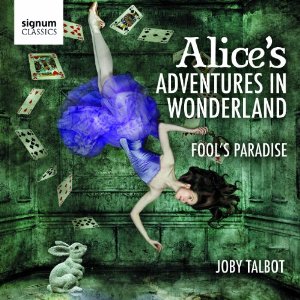
I’m a pretty ordinary music lover and a very conflicted composer. As a music lover I am just as likely to listen to Monteverdi, Purcell, Bach, Mozart, Beethoven, Berlioz or Mahler as I am to contemporary music. As a composer I’m conflicted because I recognise the power of the tonal canon but also love so much ‘difficult’ twentieth and twenty-first century music, am so constantly captivated by its strange sounds and ability to surprise. Here’s the thing, however: even if we limit our listening only to post-war classical music there is enough choice even to keep people as conflicted as me happy. Why then is the classical listening public so fixated on the past?
Take this month’s CD releases, for example, the range of style on offer is extraordinary, all of it of the highest quality. For those who like contemporary sounds, but don’t like its tendency towards formal abstraction, for example, try a new disc on Naxos featuring Samuel Adler’s Cantos and other works. Better known, perhaps, by musicians as the writer of a didactic tome on orchestration and a fearsome one on sight-singing, he is a composer of great organizational clarity. Some might argue that his music lacks a lightness of touch, but you could just as easily say that about several highly regarded Romantic composers. His Cantos, a series of works for solo instruments (on this disk are all those for strings), are very fine, less adventurous than Berio’s Sequenzas, certainly, but no less polished.
If you adore, as do I, the sounds of a composer pushing the technical envelope, of something that requires you to listen with different ears and an open mind, Penderecki is often a good bet. There is an excellent new disc of his three string quartets on Naxos paired with Lutosławski’s single quartet. The sound world of the first two totally avoids, as with many of his pieces at the time, conventional musical ideas in favour of instrumental sonorities. The effect, especially, in the first quartet is as exhilarating as listening to the visceral sounds of African drumming. The third quartet, on the other hand, is written in Penderecki’s more recent neo-Romantic style.
A composer whose style offers much for those who hanker after the world of tonality is Deirdre Gribbin, who has professed an interest in knitting together austere chromaticism with music that strongly uses elements of tonality. A good introduction to her engaging sound world is to be found in her new disk Island People, just released on NMC. Her music is influenced by Celtic myth, storytelling and folk tradition and displays an unwavering sureness of touch in relation to vocal writing.
Joby Talbot is composer perhaps best known for his film and television work, especially A Hitchhiker’s Guide to the Galaxy and the hit BBC comedies The League of Gentleman and Psychoville. He has also, however, worked with some of Europe’s leading choreographers, including with Christopher Wheeldon on a production for The Royal Ballet of Lewis Carroll’s Alice in Wonderland. A highlights disk of this score has just been released on Signum Classics. The music is quirkily tonal, unabashedly melodic, imaginatively orchestrated and virtuously (because it is well written) accessible. Some might argue that this delightful music isn’t properly ‘contemporary classical’, to which I would blow a very large raspberry. If you like any of the standard classical ballet repertoire – Tchaikovsky et al – you will love this.
There are other disks worth exploring this month: Esa-Pekka Salonen’s complete recording of Lutosławski’s Symphonies (only the recording of the first, however, is recent), a disk of Helmut Walcha organ music, more Penderecki in the shape of his Piano Concerto and Flute Concerto and Tim Brady’s Symphony No. 3 Atacama. I have dipped into and enjoyed them all. I am exhausted, however, by the need to summarize music in words, so invite you to go and have a listen, especially if you have Spotify.
And if my thumbnail portraits and final perfunctory summary seem only to scratch the surface, that reinforces my opening point. So often when I come to write these CD roundups I am bewildered, excited and overwhelmed by the volume, range and quality of new music that is available today. What composers are doing now, it seems to me, is creating a world of listening possibilities that, in our own time, is as varied as all of the music in the classical canon. If it makes ‘now’ an exciting time, imagine what it makes ‘next’.
0 comments
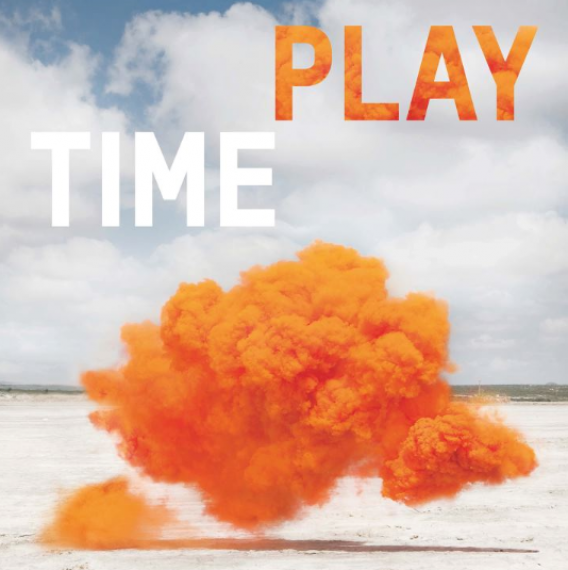
I’ve just augmented CT’s concert listings with my own summary of concerts that I have found hither and thither. As usual, however, I’ve not listed individual concerts from festivals, which can be found by visiting their websites. There are several of interest this month.
From 8th-24th March Ars Musica International Contemporary Music Festival is celebrating its 25th anniversary. Using the theme ‘Play Time’ audiences are encouraged to make a game of the festival with a programme that, it says, runs like a hopscotch. Whilst probably just a bit of harmless marketing, the programme itself is impressive, with 37 world premières in all. The pdf of it is available here in French only.
Nonclassical’s new (and possibly one-off) Pioneers of Electronic Music festival runs from 6-17th March in various London venues. Aiming to uncover the ‘mavericks, machines, heroes and heroines that helped shape modern music’, it includes a look at audiovisual instruments inspired by the life and work of Daphne Oram; a synth lab in which participants build their own instrument; a concert with electronic innovator Peter Zinovieff and violinist Aisha Orazbayeva; the presentation of films that pioneered electronic music; and a concert of electronic music that starts with Raymond Scott’s Manhattan Research, scored and arranged for an ensemble of rare vintage synthesizers.
The Lucerne Festival at Easter, which runs from 16th-24th March, is more mainstream, but there is the chance to hear, on 20th March, John Adams' The Gospel According to the Other Mary, which seems to be on something of a European tour (there are also March concerts at the Salle Pleyel and the Barbican), and, on 23rd, Benjamin Britten’s War Requiem.
On 9th March there is, finally, another Total Immersion to enjoy. The theme is ‘New from the North’, meaning Nordic and Baltic states. Composers represented include: Hans Abrahamsen, Jouni Kaipainen, Kaija Saariaho, Poul Ruders, Per Nørgård, Esa-Pekka Salonen, Einojuhani Rautavaara and Magnus Lindberg.
0 comments
1 | ... | 22 | 23 | 24 | 25 | 26 | ... | 28 |
|
Concert Listings Today & Tomorrow:
|